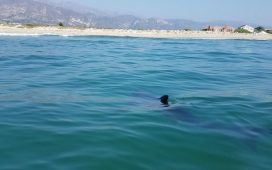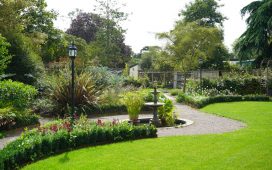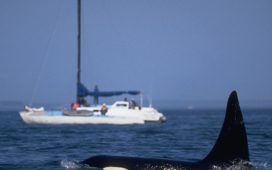HS2 is beginning an operation to remove soils from ancient woodlands at a catastrophic time of year for wildlife, according to the Woodland Trust.
Undertaking the controversial “translocation” operation – which also involves felling numerous trees – in six woods in April and not during winter as the high-speed railway originally said it would, was a “betrayal of trust” said the charity’s ecologist.
The relocation of soils from the Warwickshire woodlands, including Broadwells Wood and Crackley Wood, is supposed to quicken the establishment of new woods nearby. But HS2 Ltd agreed in official plans published as part of the hybrid parliamentary bill authorising the high-speed line that it would conduct soil translocation in winter, when plants and trees are dormant, to minimise damage.
“Everything is growing in April. It’s completely the wrong time to be doing this and HS2 know it’s the wrong time to be doing this,” said Luci Ryan of the Woodland Trust.
There is one study of the efficacy of soil translocation in establishing new woods in Britain and Ryan said there was as yet no evidence it would be successful in the long term. She also said the contractor undertaking the translocation in Warwickshire had never performed such work before.
She added: “We’ve engaged with the hybrid bill process all the way through. HS2 has promised at various stages that they will do X or Y and we’ve taken it in good faith. When it comes to doing the works, they’ve said they are actually doing A or B. It’s heartbreaking and it’s a betrayal of trust.
“It’s a government-backed project. It should be done to the highest possible standards. If a government project is doing things wrong, what does that say to other developers?”
Five campaigners have spent the past week living up trees in Crackley Wood in an attempt to halt the destruction, with HS2 “enabling” works to continue despite the coronavirus crisis.
Joe Rukin, a spokesperson for Stop HS2, claimed the destruction of bird-nest habitat was happening “on an industrial scale” in ancient woodlands “in a desperate attempt to claw back some time” after delays to the £106bn railway.
He added: “HS2 don’t seem to have noticed that the whole country is on standstill. Covid-19 has handed HS2 the opportunity to do the right thing [and delay the works] but instead HS2 have done exactly the wrong thing. They’ve seen it as an opportunity to make sure no one witnesses [their actions].”
The naturalist Chris Packham has requested an emergency injunction to halt HS2 construction works this spring until his proposed judicial review challenging the government’s decision to proceed with the railway can be heard in the high court.
HS2 said it had deferred work on five ancient woodlands until winter 2020 but could not delay works on six woods, including Broadwells and Crackley.
In a statement, it said the soil translocation was a “best practice approach” and added: “Our works programme needs to proceed as planned in order to avoid further delays and additional costs to the taxpayer … HS2 recognises the challenges of undertaking such works at this time of the year and we still feel there is value in undertaking such an approach, and will be responding to the Woodland Trust on this matter.”
Potential emissions
Construction:
• Huge quantities of steel and concrete including concrete slab-track
• Moving construction materials to site
• Tunnelling (more carbon-intensive than open-air construction)
• Construction machines
• Removing soil by truck
• Manufacture of rolling stock
• Journey to work of HS2 employees
Operation:
• Power source not guaranteed to be renewable. Speed of HS2 requires more power
• Ongoing maintenance
• Increased car journeys to HS2 stations
• HS2’s better airport connections could increase flying
• Domestic flights reduced by HS2 could lead to increase in international routes
Potential savings
• Increased rail capacity shifts freight from road to rail
• Increased capacity leads to more local/regional rail journeys
• Modal shift with travellers choosing rail over more carbon-emitting road
• Travellers also switching from flying to high-speed rail
• Carbon sequestration from tree-planting
• HS2 could be powered by all-renewable energy
• HS2 prevents other carbon-intensive infrastructure projects
Sources:
HS2 Limited, 2019, High Speed Two phase 2a, Informationa Paper, E27: carbon
Friends of the Earth, Opportunity Costs of HS2, 2019
Lord Berkeley’s Dissenting Report, 2020
[Size of emissions not included because different scenarios give different estimates; figures have not been modelled for all these factors]
With regards to nesting birds, HS2 said its teams would put temporary exclusion zones around all nests it discovered until the chicks were fledged. It said: “HS2 Ltd contractors are keenly aware of the law around nesting birds, and during nesting season an ecologist is present during all habitat clearance work in order to spot nesting birds and stop work where necessary.”
HS2 said all bat roosts would be identified and inspected before work and trees would only be felled once an ecologist had confirmed no bats were present.
Of the ancient woodlands affected by the railway in Warwickshire, HS2 said about 86.5% would remain intact and unaffected. For those areas of woodland that are removed, HS2 is planting 14.5 hectares of new broadleaved woodland, almost double the area affected.






